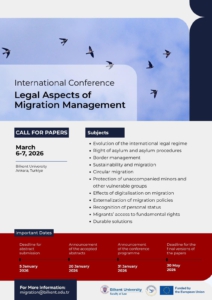Views
The Nigerian Court of Appeal Upholds South African Choice of Court and Choice of Law Agreement
Case Citation:
Sqimnga (Nig.) Ltd v. Systems Applications Products (Nig.) Ltd [2025] 2 NWLR 423 (Court of Appeal, Lagos Division, Nigeria)
The dispute in this case arose between two Nigerian companies, Sqimnga Nigeria Ltd (the appellant) and Systems Applications Products Nigeria Ltd (the respondent). Both parties had entered into a Master Service Agreement in Nigeria, relating specifically to software solutions. A critical provision of this agreement stipulated that the laws of South Africa would govern any disputes, and further, that South African courts would possess exclusive jurisdiction to hear any matters arising from the agreement.
When a disagreement emerged between the parties, Sqimnga Nigeria Ltd initiated legal proceedings at the Lagos State High Court. The respondent immediately contested the jurisdiction of the Nigerian court, relying on the contractual clause mandating the use of South African law and courts. Read more
Silence Is Not Submission: Chinese Court Refuses to Enforce U.S. Default Judgment Rendered in Breach of Arbitration Agreement

Written by Dr. Meng Yu, lecturer at China University of Political Science and Law, and co-founder of China Justice Observer.
ABSTRACT
In around 2019, a Chinese court in Hebei Province refused to enforce a US default monetary judgment from a California court on the grounds that a valid arbitration agreement was in place (Sunvalley Solar Inc. v Baoding Tianwei Solarfilms Co. Ltd. (2019) Ji 01 Xie Wai Ren No. 3). This decision underscored the court’s reliance on the arbitration agreement’s validity, even though a subsequent legislative proposal to include arbitration agreements as an indirect jurisdictional filter in China’s Civil Procedure Law (2023 Amendment) was ultimately not adopted.
The Validity of the Utah Zoom Wedding in Lebanon, or the Question of Locus Celebrationis in the Digital Age

Many thanks to Karim Hammami for the tip-off
I. Introduction
Once in the 20th century, the so-called “Nevada Divorces” captured the attention of private international law scholars around the world, particularly regarding their recognition abroad. Today, a similar phenomenon is emerging with the so-called “Utah Zoom Wedding.” So, what exactly is this phenomenon? Read more
News
Upcoming European Dialogue on Civil Procedural Law “Recent Developments on Brussels Ibis” Thursday, 4 December 2025 1 pm CET
The next session of the conference series European Dialogue on Civil Procedural Law will take place (online) on Thursday, 4 December 2025, from 13:00 to 17:00 (CET), under the theme “Recent Developments on Brussels Ibis”.
The event is organised by Dr. habil. Balázs Arató, PhD, Prof. Dr. Thomas Garber, Prof. Dr. Katharina Lugani and Prof. Dr. Matthias Neumayr.
The Brussels I bis Regulation, together with its parallel instrument, the Lugano Convention, forms the core of European civil procedure law. Events in this series serve to promote dialogue among Member States and with third countries, thereby strengthening and improving the integration and efficiency of European legal instruments. The interim online conference on 4 December 2025 will feature country reports from four legal systems and two presentations on current topics relating to the Brussels Ia Regulation. The event is aimed at academics and practitioners alike. We look forward to a lively exchange.
The speakers are :
- Dr. habil. Balázs Arató, PhD, Budapest, Hungary
- Dr. Caterina Benini, Università Cattolica del Sacro Cuore, Milan, Italy
- Assoc.-Prof. Dr. Eva Dobrovolná, Ph.D., LL.M., Masaryk University, Brno, Czech Republic
- Prof. Dr. Étienne Farnoux, University of Strasbourg, France, seconded to the Saint Joseph University of Beirut, Lebanon
- Prof. Dr. Thomas Garber, Johannes Kepler University Linz, Austria
- Prof. Dr. Katharina Lugani, Heinrich Heine University Düsseldorf, Germany
- Prof. Dr. Robert Magnus, University of Bayreuth, Germany
- Assoc.-Prof. Dr. Martina Melcher, M.Jur, University of Graz, Austria
- Prof. Dr. Matthias Neumayr, Johannes Kepler University Linz, Austria
- Prof. Dr. Anna Nylund, University of Bergen, Norway
The flyer for the event can be found here.
Please register here.
Participation is free of charge.
HCCH Monthly Update: November 2025
HCCH Monthly Update: November 2025
Conventions & Instruments
On 5 November 2025, Algeria deposited its instrument of accession to the 1961 Apostille Convention. With the ratification of Argentina, the Convention now has 58 Contracting Parties. With the accession of Algeria, the 1961 Apostille Convention now has 128 Contracting Parties. It will enter into force for Algeria on 9 July 2026. More information is available here.
On 27 November 2025, Monaco deposited its instrument of accession to the 2005 Choice of Court Convention. With the accession of Monaco, 38 States and the European Union are bound by the 2005 Choice of Court Convention. The Convention will enter into force for Monaco on 1 March 2026. More information is available here.
Call for Papers- International Conference on Legal Aspects of Migration Management
Bilkent University Faculty of Law and Jean Monnet Chair in Legal Aspects of Migration Management in the EU and in Türkiye cordially invite you to submit abstracts for the International Conference on Legal Aspects of Migration Management to be held at Bilkent University on 6-7 March 2026.
The Conference aims to give the opportunity to researchers who would like to present their theoretical or empirical research on the development of policy, legislative and administrative responses to key migration issues.
We particularly encourage submissions on the questions of evolution of the international legal regime relating to migration; the right of asylum and asylum procedures; border management; sustainability and migration; circular migration; protection of unaccompanied minors and other vulnerable groups; effects of digitalisation on migration; externalization of migration policies, recognition of personal status; migrants’ access to fundamental rights and durable solutions. Proposals involving comparative perspectives of international, European and national approaches are most welcome.
Abstracts (max. 500 words) (in English or in Turkish) should be sent to migration@bilkent.edu.tr by 5 January 2026.
Detailed information shall be provided upon request: migration@bilkent.edu.tr




